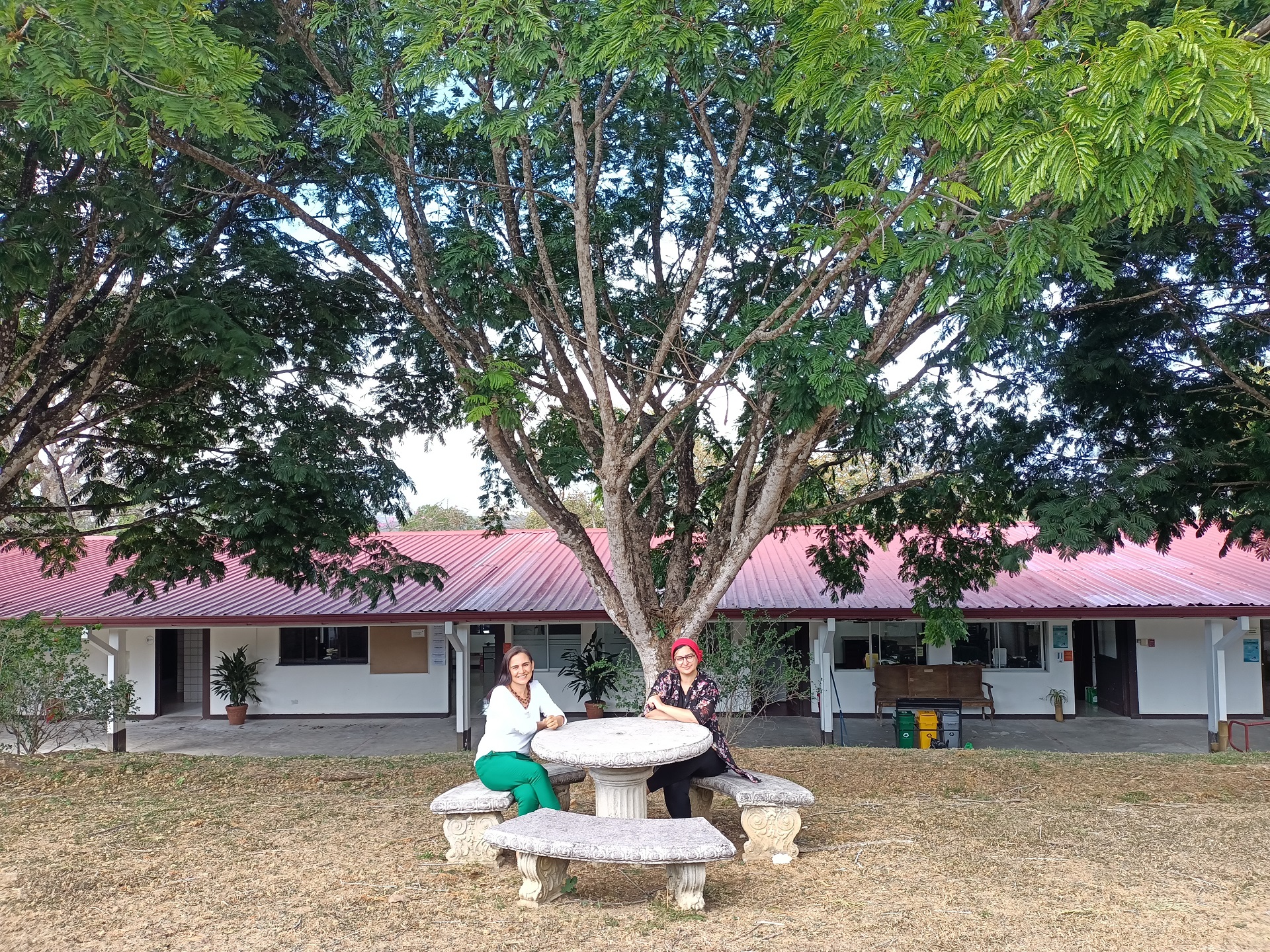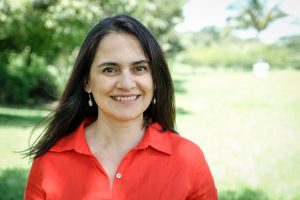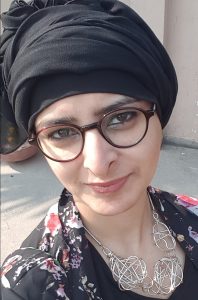Costa Rica’s United Nations mandated University for Peace is WEMov’s first stakeholder. The institution is represented by Adriana Salcedo and Uzma Rashid. Dr Adriana Salcedo is Assistant Professor in the Department for Peace and Conflict Studies and Coordinator of the MA in International Peace Studies. Dr Uzma Rashid currently serves as Associate Professor in the Department of Peace and Conflict Studies and Coordinator of the MA in Gender and Peacebuilding at the University for Peace. (Zoom, 16 February 2021)

Dr Adriana Salcedo and Dr Uzma Rashid
© UPeace
Teresa Bernardi: Good evening Adriana and Uzma. Welcome and thank you for accepting our invitation. I would like to remind everyone that the University for Peace is the first stakeholder of Women on the Move Cost Action. Dr Adriana Salcedo is Assistant Professor in the Department of Peace and Conflict Studies and Coordinator of the MA in International Peace Studies. Dr Uzma Rashid is Associate Professor in the Department of Peace and Conflict Studies and she currently serves as Coordinator of the MA in Gender and Peacebuilding at the University for Peace. I’ll now give the floor to Heidi for the first questions and I will then come back for the second part of the interview. Thank you.
Heidi Martins: Thank you Teresa, and thank you Uzma and Adriana for accepting our invitation. Let’s start. The University for Peace is known worldwide as a global academic institution involved in processes of peacebuilding and peacekeeping. Could you please tell us more about the history of this unique university and its main objectives?
 Adriana Salcedo: Thank you. Maybe I can start a little bit the delimiting the history and then Uzma, please free to step in. Well, as you mentioned, the University for Peace was born under a UN mandate, so it was adopted in December 1980, by the General Assembly and the UN Resolution 35/55 was the one that created the university, and it was based on the recognition that we were in the academic field and in the policy field focusing a lot on war studies and security studies and why not have this shift in our academia and in our policy making towards peace? So, yes, we do need to understand about violence and conflict but also, we need to focus, our main goal is to achieve sustainable peace in the longer run. So, that’s, I guess, the main rationale behind the creation of the university. Of course, there was a convergence of political factors, political leaders, that strengthened this dream. Actually, the former Costa Rican President, Rodrigo Carazo, at that time, was the one who pushed forward for this project at the UN. Maybe Uzma, you can tell us more about why Costa Rica.
Adriana Salcedo: Thank you. Maybe I can start a little bit the delimiting the history and then Uzma, please free to step in. Well, as you mentioned, the University for Peace was born under a UN mandate, so it was adopted in December 1980, by the General Assembly and the UN Resolution 35/55 was the one that created the university, and it was based on the recognition that we were in the academic field and in the policy field focusing a lot on war studies and security studies and why not have this shift in our academia and in our policy making towards peace? So, yes, we do need to understand about violence and conflict but also, we need to focus, our main goal is to achieve sustainable peace in the longer run. So, that’s, I guess, the main rationale behind the creation of the university. Of course, there was a convergence of political factors, political leaders, that strengthened this dream. Actually, the former Costa Rican President, Rodrigo Carazo, at that time, was the one who pushed forward for this project at the UN. Maybe Uzma, you can tell us more about why Costa Rica.
 Uzma Rashid: Yes. So, thank you for starting with the history. Basically, UPeace is based in Costa Rica, which itself, I think, warrants some analysis of “why Costa Rica”, “why is it based in Costa Rica”? I think that also is – along with the other decisions that were made for the university – that was also a very strategic decision, because if you look at the context of Costa Rica, it is known to be an emblem of peace in many ways, you know. It abolished the death penalty in 1982 and then it also abolished its army in 1948. So, you know, it’s already a context which has been working towards promoting peace. It is already seen as a place that also hosts a lot of migrant communities. So, this region, in the world, it’s known for that, so it provides a perfect landscape, in a way, for a global institute such as UPeace which has the objectives of furthering peace, of promoting global peace, security and wellbeing. So, the location of Costa Rica also aligns with the objectives of UPeace. So, in a way, I think, the location of the university complements its objectives, which is another interesting piece of its history.
Uzma Rashid: Yes. So, thank you for starting with the history. Basically, UPeace is based in Costa Rica, which itself, I think, warrants some analysis of “why Costa Rica”, “why is it based in Costa Rica”? I think that also is – along with the other decisions that were made for the university – that was also a very strategic decision, because if you look at the context of Costa Rica, it is known to be an emblem of peace in many ways, you know. It abolished the death penalty in 1982 and then it also abolished its army in 1948. So, you know, it’s already a context which has been working towards promoting peace. It is already seen as a place that also hosts a lot of migrant communities. So, this region, in the world, it’s known for that, so it provides a perfect landscape, in a way, for a global institute such as UPeace which has the objectives of furthering peace, of promoting global peace, security and wellbeing. So, the location of Costa Rica also aligns with the objectives of UPeace. So, in a way, I think, the location of the university complements its objectives, which is another interesting piece of its history.
